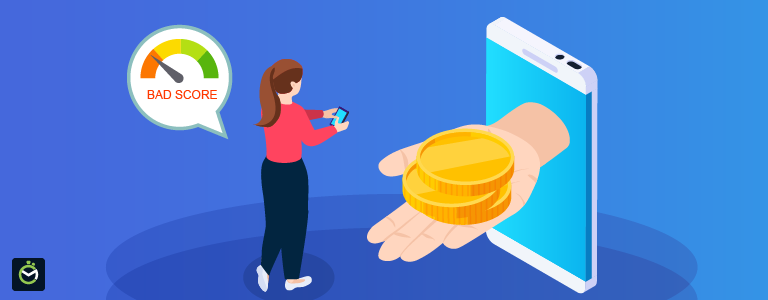Choosing a debt settlement company is a crucial decision that can significantly impact your financial future. Many companies claim to help consumers reduce their debt, but not all of them operate with transparency and integrity. Asking the right questions before hiring a debt settlement firm can protect you from scams, hidden fees, and unrealistic promises. This article explores the key things to ask your debt settlement company before hiring them so that you can make an informed choice.
How Does Debt Settlement Work with Your Company?
Debt settlement companies generally negotiate with creditors to lower the amount you owe, but their methods may vary. Some firms require you to stop making payments and accumulate funds in a dedicated account before negotiating, while others work directly with creditors while you continue partial payments. Asking how their process works ensures you understand their approach and whether it aligns with your financial goals.
What Fees Will I Be Expected to Pay?
Understanding the cost of debt settlement services is essential. Some companies charge a percentage of the total debt enrolled, while others base fees on the savings they secure for you. Federal regulations prohibit upfront fees, so any company that requests payment before settling debts is a red flag. Clarify all potential charges, including administrative fees or penalties, before signing an agreement.
Is Your Company Accredited by Industry Organizations?
Reputable debt settlement companies are often accredited by industry organizations such as the American Fair Credit Council (AFCC) or the International Association of Professional Debt Arbitrators (IAPDA). These groups set ethical standards for the industry. Verifying a company’s accreditation helps confirm that they adhere to fair business practices and consumer protection guidelines.
How Long Does the Settlement Process Typically Take?
Debt settlement is not an immediate solution, and timelines vary based on the total debt amount, the creditors involved, and the company’s negotiation process. On average, the process takes between two to four years. Understanding the timeframe helps you set realistic expectations and determine if debt settlement aligns with your financial needs.
Will My Credit Score Be Affected?
Debt settlement can impact your credit score, especially if the company advises you to stop making payments to creditors. Missed payments can result in late fees, additional interest, and negative marks on your credit report. A trustworthy company should provide a transparent explanation of how their services may affect your credit standing and offer guidance on rebuilding your credit afterward.
Do You Guarantee That My Debt Will Be Settled?
Legitimate debt settlement companies cannot guarantee that creditors will agree to negotiate or settle your debt for a lower amount. If a company makes promises that sound too good to be true, this is a major warning sign. Settlement success depends on various factors, including the creditor’s policies and your financial situation. A reputable company will be upfront about potential outcomes and risks.
What Happens If a Creditor Refuses to Settle?
Not all creditors are willing to negotiate a reduced balance. Ask the company how they handle cases where creditors refuse to settle. Will they attempt multiple rounds of negotiation? Will they suggest alternative solutions? Understanding their approach to difficult creditors helps you prepare for different outcomes.
Are There Any Legal Risks Associated with Debt Settlement?
Since debt settlement often involves stopping payments, creditors may choose to take legal action against you. Some companies offer legal support as part of their service, while others may leave you to handle lawsuits on your own. Before hiring a company, ask if they provide legal assistance or referrals in case of creditor lawsuits.
Can I Continue Communicating with My Creditors?
Some debt settlement firms instruct clients to avoid direct communication with creditors, while others allow ongoing discussions. Ask whether you can remain in contact with your creditors during the process. Keeping open communication might give you additional leverage or help you better understand your options.
What Happens If I Can No Longer Afford My Payments?
Debt settlement companies often require clients to make monthly deposits into a special account, which is later used to pay settlements. If your financial situation changes and you cannot make these payments, it is essential to know how the company will handle it. Will they modify your plan? Will they charge penalties? Understanding your options can help you avoid unnecessary stress.
Are There Alternatives to Debt Settlement?
A reputable debt settlement company should inform you about alternative options, including credit counseling, debt consolidation, or bankruptcy. If a company only pushes their services without discussing other possibilities, it might not have your best interests in mind. Exploring all options ensures that you choose the most suitable solution for your financial situation.
How Will I Know When a Settlement Has Been Reached?
Transparency is key in the debt settlement process. Ask the company how they will notify you when a creditor agrees to a settlement and how you can verify the agreement. Will you receive written confirmation? Will they involve you in the final negotiation step? Knowing how settlements are finalized helps prevent misunderstandings.
Will My Settled Debts Be Reported to Credit Bureaus?
When a debt is settled for less than the full amount, creditors typically report it as "settled" rather than "paid in full." This distinction can impact your creditworthiness. Ask the company how they handle credit reporting and whether they offer guidance on improving your credit after settlements are completed.
What Happens to the Funds in My Dedicated Account?
Most debt settlement programs require you to deposit funds into a dedicated account. You should ask whether these funds are insured, who manages the account, and what happens if you choose to exit the program before all

